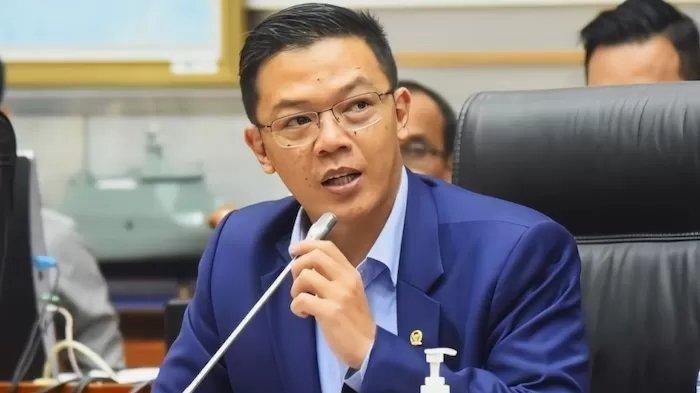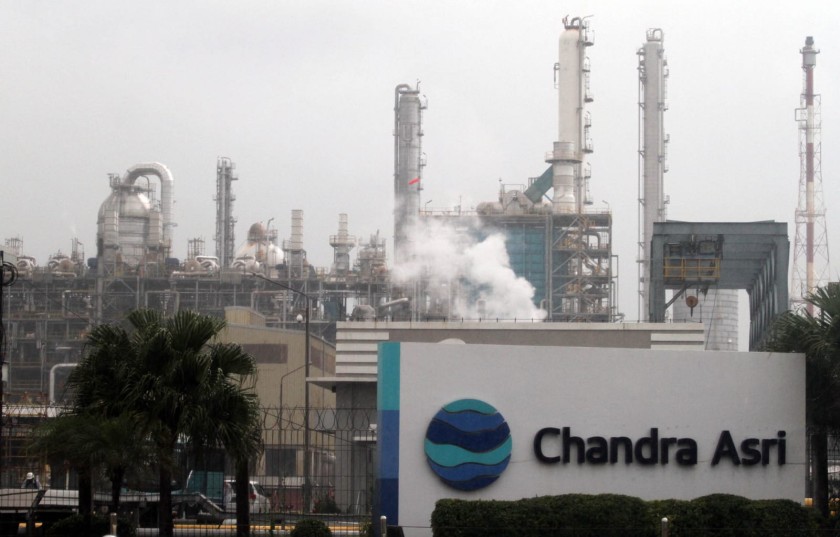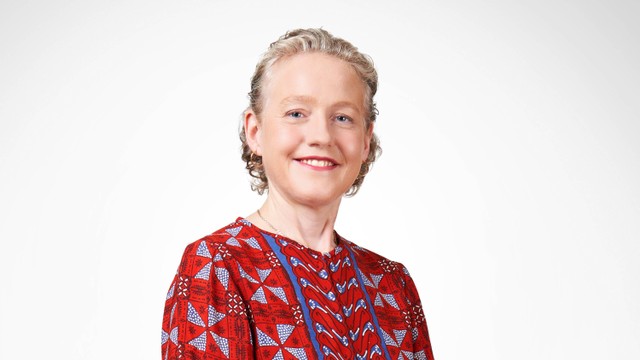Consumer goods growth slows in Q1 2025: Kantar
The fast-moving consumer goods (FMCG) industry in Indonesia experienced a slowdown in growth in the first quarter (Q1) of 2025.

The fast-moving consumer goods (FMCG) industry in Indonesia experienced a slowdown in growth in the first quarter (Q1) of 2025.

Indonesian Foreign Minister Sugiono received a courtesy call from the British Ambassador to Indonesia, Dominic Jermey, at the Ministry of Foreign Affairs in Jakarta today, May 8, 2025.

Subscribe for Free

Aster Chemicals and Energy (Aster), the joint venture between PT Chandra Asri Pacific (TPIA) and global commodity giant Glencore, is set to acquire Chevron Phillips Singapore Chemicals Pte Ltd (CPSC) through its affiliate, Chandra Asri Capital Pte Ltd.

The United Kingdom has expressed commitment US$7.27 million (Rp127 billion) to help Indonesia reach its FOLU Net Sink 2030 target − an ambitious national goal to achieve net carbon absorption in the forestry and land use sector.

PLN Indonesia Power (PLN IP) has secured green financing from France’s development finance institution Proparco and Standard Chartered Bank for the construction of the 92 Megawatt-peak (MWp) Saguling Floating Solar Power Plant (PLTS) in West Java.
Get the latest business insights and discover high-potential opportunities in emerging markets that are redefining Indonesia’s economic landscape.
Uncovers the dynamics of state-owned enterprises and corporate giants with a vibrant and insightful approach, making the corporate world both fascinating and accessible.

Bold opinions and cutting-edge perspectives from thought leaders on the burning issues of our time.
Unveil the stories of influential figures transforming Indonesia’s industries, economy, and political landscape.
Sofyan A. Djalil was born in 1953 in Aceh. Djalil is the Minister of Agrarian and Spatial Planning of Indonesia. He was a very persistent person at a young age to reach his goals, that persistence made him successful in studying at the University of Indonesia (UI). At UI, he studied Business Law and graduated in 1984. He then met his future wife, Dr. Ir. Ratna Megawangi, M.Sc. and has 3 children.
Siti Nurbaya Bakar was born in 1956 in Jakarta to Mochamad Bakar and Sri Banon. She is the current Minister of Environment and Forestry. Her father is a retired Betawi Police officer and his mother is from Lambung. Siti is married to Rusli Rachman and has two children: Meitra Mivida NR and Ananda Tohpati.
Sandiaga Salahuddin Uno was born in 1969 in Riau, Indonesia. Uno is the current Minister of Tourism and Creative Economy. During his childhood, he met with Erick Thohir and was in the same elementary school as a schoolmate. Sandiaga Uno was an undergraduate of Wichita State University in the United States, he graduated with a cum laude. He continued his university education in the United States at George Washington University in 1990 after receiving a paid scholarship from William Soerjadjaja and graduated with an MBA in 1992 and a GPA 4.00.
Wahyu Sakti Trenggono was born in Semarang in 1962, He is the current Minister of Maritime Affairs and Fisheries. Trenggono is a person who focuses on business development. He attended a bachelor's degree in Industrial Engineering at the Bandung Institute of Technology in 1986, after which he continued his Masters in Management at the Bandung Institute of Technology.
Mohammad Ridwan Kamil called Kang Emil or Ridwan was born in Bandung in 1971. Kamil is the Governor of West Java since 2018. He is the son of a husband and wife Dr. Atje Misbach, S. H. and Dra. Tjutju Sukaesih. Ridwan is the second of five children. Ridwan has a family, he is married to Atalia Praratya Kamil and has children Camillia Laetitia Azzahra and Emmiril Khan Mumtadz.
Deep dives into hidden truths, exposing the scandals and secrets that shake the foundations of business and governance.
Dissecting the pulse of the nation’s politics, where power plays and policies collide in a fight for the future.
Powerful insights into the key political players pulling the strings behind government decisions and shaping the nation's future.
Explore the global forces shaking the world and their ripple effects on Indonesia’s destiny.
The nation’s ability to manage and recover from challenges is evaluated through its strategies in food security, defense, and energy preparedness. This section assesses Indonesia’s effectiveness in tackling crises and ensuring national resilience.

A glimpse into the minds of visionary leaders driving corporate giants and redefining success.
Immersive storytelling and conversations that bring the most critical topics to life through multimedia experiences.
Step into the shadowy world of cyber threats, espionage, and national security in the digital age.
French Minister of Foreign Trade Laurent Saint-Martin met with Indonesian Minister of Communication and Digital Application Meutya Hafid on Wednesday, April 9, 2025, , discussing progress update of the National Data Center (PDN-1).
The Ministry of Communication and Digital Application (Komdigi) is reviewing cooperation in building a joint Artificial Intelligence (AI) center in ASEAN along with China, considered to be the largest in terms of cooperation in developing digital infrastructure.
Meutya V. Hafid, Minister of Communication and Digital Application (Komdigi), representing President Prabowo Subianto, is attending the Artificial Intelligence Action Summit (AIAS) Meeting in Paris, France on Monday, February 10-11, 2025.
Hacker Bjorka, who shook Indonesia in 2022 and 2023 when the nation had yet to completely free from the Covid 19 pandemic, now returns with an X account revealing that several private and state-owned banks in Indonesia, such as BCA, BNI, BSI, Bank Mandiri and the Central Bank (BI) will be the next targets of ransomware hacker groups.
The Indonesian and Indian governments have formalized cooperation in the digital sector through the signing of a Memorandum of Understanding (MoU) between the Indonesian Ministry of Communication and Digital (Komdigi) and the Indian Ministry of Electronics and Information Technology.
Minister of Communication and Digital Application (Komdigi) met with Head of the Special Investigation and Development Control Agency (BPPIK) on Thursday, January 9, 2025, discussing the eradication of online gambling, with focus on improving information technology (IT), IT governance, and improving human resources (HR).
A chilling look into the underworld of corruption, illicit wealth, and shadow economies.
The Attorney General’s Office (AGO) has launched a preliminary investigation into suspected corruption surrounding bank loan disbursements to textile giant PT Sri Rejeki Isman (Sritex) that was declared bankrupt in October 2024.
The Indonesian Maritime Security Agency (Bakamla) has intercepted a wooden vessel suspected of smuggling tin ore without proper documentation in the northern waters of the Karimata Strait, near Lingga Island, Riau Islands Province, on Friday, April 25, 2025.
JAK TV News Director, Tian Bahtiar (TB), has been named a suspect by the Attorney General's Office (AGO) for allegedly receiving money in return for producing and publishing negative news content about the AGO through social and online media platforms and JAK TV.
Minister of Agriculture Andi Amran Sulaiman has confirmed the legal process against an agricultural observer allegedly involved in a fictitious project that cost the state Rp5 billion (US$300,000).
Unravel the intricate threads of justice, societal transformation, and cultural narratives shaping Indonesian society.
Dozens of residents of Bumi Raya and Wita Ponda sub-districts in Central Sulawesi staged a protest on Monday, May 5, 2025, opposing the planned construction of a raw water pipeline crossing the Karaopa River, which is intended for PT Indonesia Huabao Industrial Park (IHIP) and PT Bahusuo Taman Industri Investment Group (BTIIG), both operating in Bungku Barat, Morowali Regency.
Hundreds of residents from villages across West Sulawesi staged a protest in front of the provincial governor’s office on Monday, May 6, 2025, calling for a moratorium on mining permits, the revocation of extractive industry licenses, and the halt of all ongoing mining operations threatening their environment and livelihoods.
Zarkasih, the former Amir (leader) of Jemaah Islamiyah (JI), has confirmed that the organization has sincerely renounced terrorism and is aligning itself fully with the framework of the Indonesian state.
Escape into the world of indulgence, from serene getaways to the cultural riches that refresh the soul.
The Indonesian Ministry of Energy and Mineral Resources (ESDM) has developed a detailed roadmap to incorporate hydrogen as a primary energy source by 2060.
Indonesian Military (TNI) personnel shot dead three Papuan armed separatist group members on Tuesday, July 16, 2024, in Puncak Jaya regency, Central Papua Province.
Minister of Energy and Mineral Resources (ESDM) Arifin Tasrif held bilateral meetings with Deputy Prime Minister and Minister for Climate and Energy Policy of the Netherlands, Rob Jetten, during his visit to the Netherlands this week.
Indonesia bolsters energy cooperation between nations through PT Pertamina (Persero), the state-owned Indonesian oil and gas company, inked a groundbreaking exploration and production agreement with Tanzania Petroleum Development Company (TPDC), a state-owned enterprise from Tanzania. This landmark collaboration was formalized during the official visit of President Joko Widodo (Jokowi) to Tanzania.